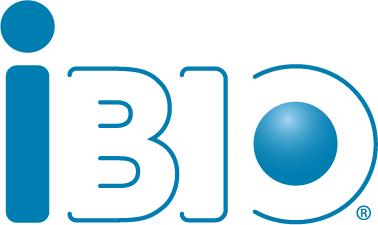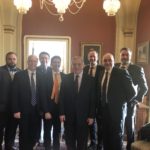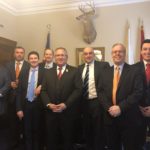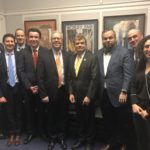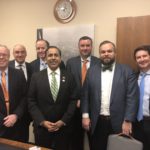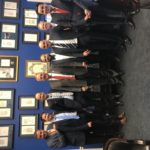Last week, iBIO organized a trip to Washington for Illinois medical technology (MedTech) companies to meet with lawmakers and discuss how they can work together to provide patients greater access to next generation, life-saving products.
The fly-in participants met with 10 congressional members and both senate offices. Thank you to Endotronix, Flow-FX and Bob Brutvan for participating in the 2019 Medtech Flyin.
Over the past couple years Illinois has outpaced the national average for employment growth and establishment growth in the Medtech industry.

The growth of the community has been fueled by a surge of patent production and our universities. Over the past 5 years 1,714 patents for medical and surgical devices have been filed in Illinois.

It is important to understand where scientific or policy issues may impact the medtech community’s ability to continue to innovate and bring new medical products to the market.
Eliminating taxes on innovative products and providing clarity on review timeline and coverage decisions were major topics of discussion at the medtech flyin this year.
There are currently two bills waiting to be introduced in DC to address both of these issues.
Breakthrough Pathway
The breakthrough pathway proposal would establish a program of accelerated transitional coverage and payment for new technologies that offer breakthroughs in the treatment or diagnosis of serous illnesses affecting Medicare beneficiaries.
The FDA would designate a new therapy as a breakthrough product if it meets the following conditions:
- Provides more effective treatment or diagnosis of life-threatening or irreversibly debilitating disease or conditions;
- Has no approved alternatives;
- Offers significant advantages over existing approved alternatives; or
- Avalibility is in the best interest of patients.
If the products meets the threshold it would qualify for expedited FDA review. If the therapy were ultimately approved by FDA, CMS would provide temporary coverage for three years. During the three years the therapy would receive a guarenteed level of payment, and CMS could specify the additional data needed to continue coverage after the three-year period under its statutory “reasonable and necessary” standard.
The proposal also improves the existing NTAP program. These improvements are designed to reduce coverage and payment disincentives that limit prompt patient access to innovative but more costly technologies. These changes would both stimulate development of important new diagnostics and treatment and assure prompt availability of those treatments to patients. The Ensuring Patient Access to Critical Breakthrough Products Act of 2019 will be introduced soon.
Medical Device Tax Repeal
The Protect Medical Innovation Act is expected to be introduced soon, which would repeal the medical device tax.
The medical device tax is a 2.3% excise tax on the sale of most medical technologies that was enacted as part of the Affordable Care Act. Given that this tax applies to revenues, not profits, it is extremely punitive to medical technology innovators. Since the inception of the medical device tax, there has been growing bipartisan support to end this tax on innovation and it has been suspended multiple times by Congress. In 2018, the House passed a bill to repeal the tax 283-132, but the Senate failed to act.
If Congress does not act this year, the medical device will be reinstated in 2020, and billions of dollars will be diverted away from research and development for cures and therapies. Perhaps most concerning, the short term suspensions limit the ability of companies to make longer term investments in new technologies and treatments without the certainty of a full repeal.
Large bipartisan majorities in Congress agree that the medical device tax is bad policy and have suspended the tax twice for a total of four years. Additionally, Congress has suspended the tax longer than it has allowed it to be in effect, with no measurable impact on coverage. While these suspensions have had no measurable impact on health care coverage, the relief has enabled medical device makers to invest in important research and development projects and new hires.
If the tax is allowed to go back into effect, it will exacerbate job losses sustained when the tax was in effect. During that period, the U.S. medical technology industry saw its jobs ranks fall by nearly 29,000 according to data from the U.S. Department of Commerce. In Illinois these workers earn on average $125,715.
